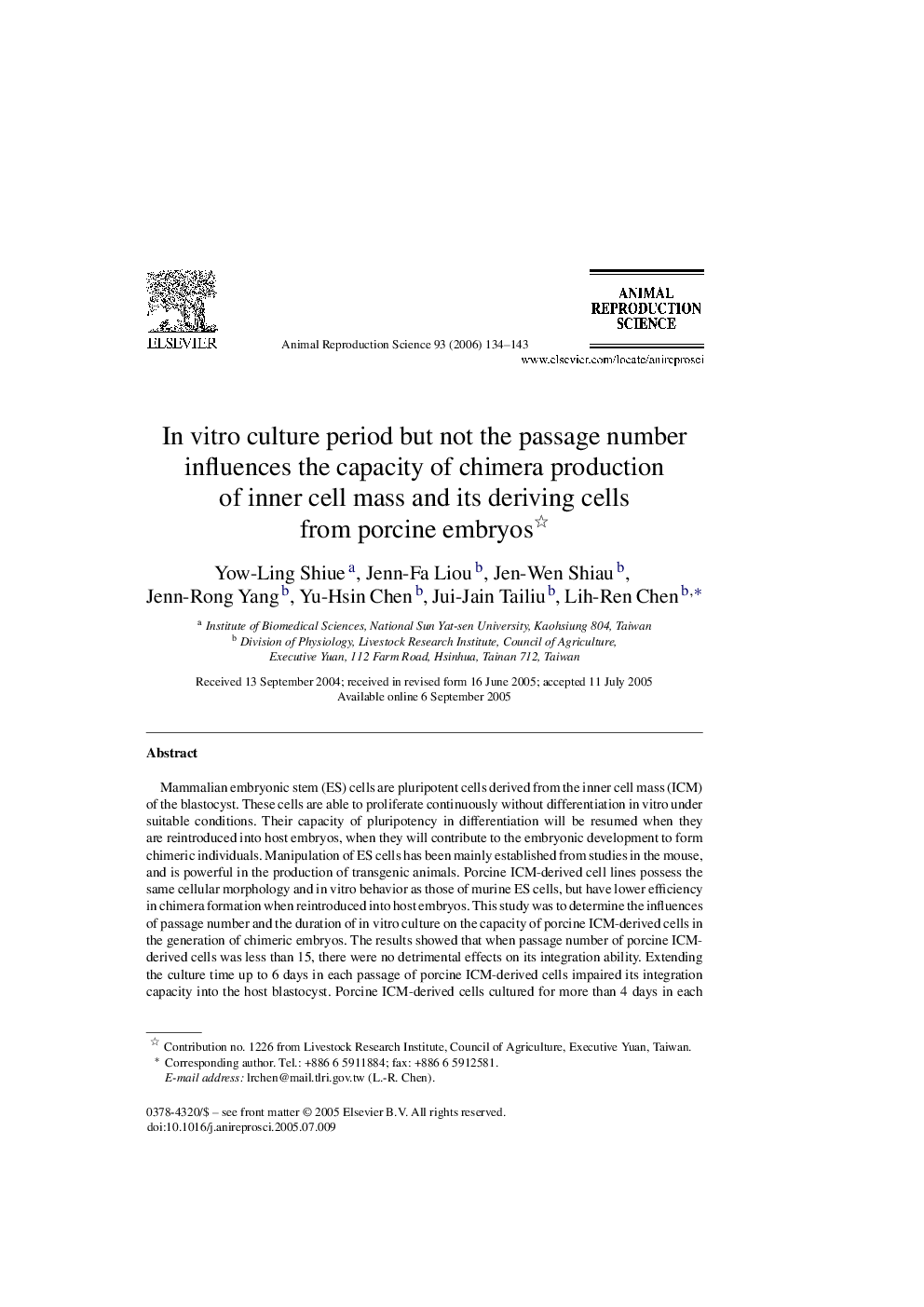| Article ID | Journal | Published Year | Pages | File Type |
|---|---|---|---|---|
| 2075248 | Animal Reproduction Science | 2006 | 10 Pages |
Mammalian embryonic stem (ES) cells are pluripotent cells derived from the inner cell mass (ICM) of the blastocyst. These cells are able to proliferate continuously without differentiation in vitro under suitable conditions. Their capacity of pluripotency in differentiation will be resumed when they are reintroduced into host embryos, when they will contribute to the embryonic development to form chimeric individuals. Manipulation of ES cells has been mainly established from studies in the mouse, and is powerful in the production of transgenic animals. Porcine ICM-derived cell lines possess the same cellular morphology and in vitro behavior as those of murine ES cells, but have lower efficiency in chimera formation when reintroduced into host embryos. This study was to determine the influences of passage number and the duration of in vitro culture on the capacity of porcine ICM-derived cells in the generation of chimeric embryos. The results showed that when passage number of porcine ICM-derived cells was less than 15, there were no detrimental effects on its integration ability. Extending the culture time up to 6 days in each passage of porcine ICM-derived cells impaired its integration capacity into the host blastocyst. Porcine ICM-derived cells cultured for more than 4 days in each passage should not be used for blastocyst injection if high efficiency of chimera production is to be achieved.
